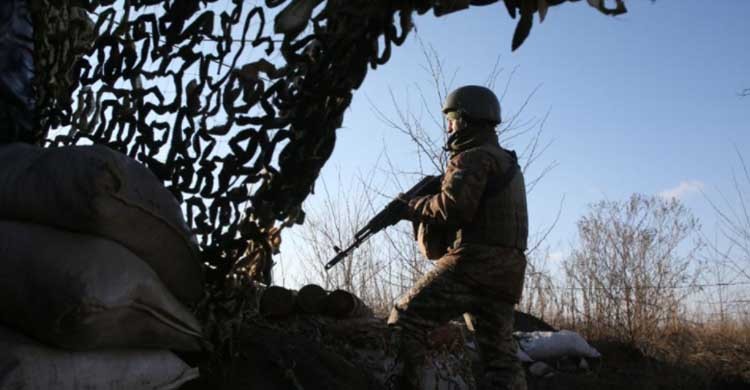Ukraine soldier killed in clashes near Russia border
19 February 2022, 07:24 pm | Updated: 19 April 2025, 09:01 pm

Ukraine's army on Saturday reported the first death of a soldier in weeks and accused Moscow-backed rebels of sharply escalating attacks that have redoubled fears of an imminent Russian invasion.
The joint military command for east Ukraine said a soldier received a fatal shrapnel wound in the conflict zone running across two separatist regions near the Russian border.
Ukraine's emergency service said two of its staff were wounded during a wave of attacks on Friday, reports AFP.
The armed forces said rebels had used 82 and 120 millimetre-calibre mortar shells -- banned under previous ceasefire deals -- in towns across the front running through the eastern regions of Lugansk and Donetsk.
Separatist fighters are "firing artillery rounds on population centres and placing their artillery systems near residential homes," the Ukrainian army said.
"This way, our enemy is trying to force our armed forces to return fire and then blame them for shelling civilians," it said.
The military added that it was continuing to "rebuff and contain the armed aggression" without attacking civilians, and accused Russia of directing its allies' attacks.
Moscow formally denies being involved in the conflict and calls it a Ukrainian internal affair.
But monitors from the OSCE European security body have reported regular shipments of Russian weapons across the border throughout the eight-year war.
The OSCE reported a massive 870 ceasefire violations across the conflict zone in its latest report Friday, which referred to incidents the previous days.
"In recent days, the OSCE Special Monitoring to Ukraine (SMM) has observed a dramatic increase in kinetic activity along the contact line in eastern Ukraine," the OSCE said in a statement.
Rebel leaders accuse the Ukrainian armed forces of trying to retake their two separatist regions by force -- a claim Kyiv denies.
The rebel leaderships in Donetsk and the smaller Lugansk region on Saturday both called the situation "critical" and announced a "general mobilisation".






















